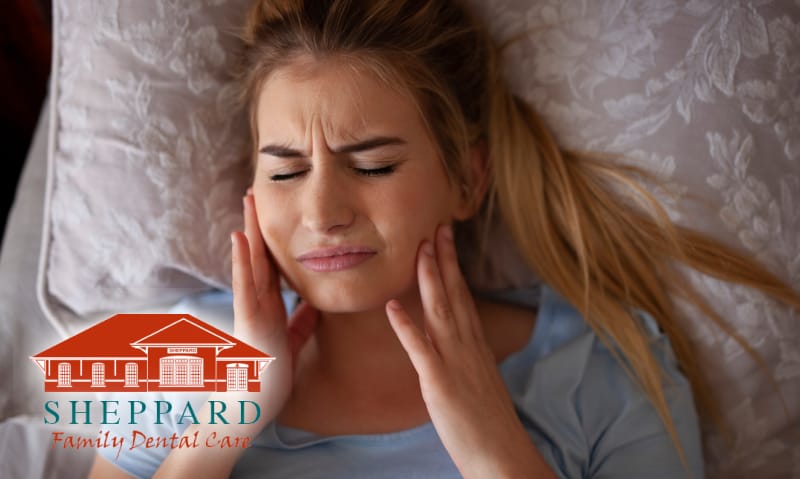Grinding Away Stress: The Link Between Bruxism and Your Emotional Well-Being

The Truth About Teeth Grinding
Bruxism, more commonly known as teeth grinding or clenching, is a physical response to various factors, most notably stress. If you’ve ever found yourself involuntarily gritting your teeth when under pressure, you’ve experienced firsthand the intricate connection between our emotional well-being and physical reactions.
According to Cedars-Sinai, stress and anxiety are the leading causes of bruxism, a condition affecting up to one-third of the population. With modern life’s increasing pace and demands, it’s no surprise that this physical manifestation of internal tension is rising. So, let’s explore the fascinating world of bruxism, illuminating the complex interplay between our dental health and emotional constitution.
What is bruxism?
Bruxism is a condition characterized by the grinding or clenching of teeth, mostly occurring involuntarily during sleep or under stress. This seemingly innocuous habit can have profound implications for dental health.
The intense pressure and friction caused by repeated grinding can slowly erode tooth enamel, the protective outer layer of the teeth, leading to increased sensitivity to hot, cold, or sweet stimuli. As enamel thinning progresses, the inner, softer dentin can be exposed, making teeth more prone to fractures or chipping. For instance, a person with a severe form of this condition may find their once straight and even teeth becoming uneven and jagged.
In extreme cases, excessive grinding can lead to more serious dental complications, including temporomandibular joint disorder (TMD), a painful condition that affects the joint connecting the jaw to the skull, or even tooth loss. The continuous stress on the teeth and jaws can also result in facial discomfort and headaches.
What causes bruxism?
A combination of physical, psychological, and genetic factors often triggers bruxism. One of the most significant contributors is stress and anxiety. Various studies have established a strong correlation between heightened emotional states and increased instances of teeth grinding. When we are under stress, our bodies tend to go into a fight-or-flight mode. This heightened state of alertness often leads to intensified muscle activity, including the jaw muscles, resulting in teeth clenching or grinding.
Alongside stress and anxiety, certain sleep disorders like sleep apnea (an interrupted breathing pattern during sleep) have also been linked to bruxism. People with this disorder tend to grind their teeth during the apneic episodes, which is the period when breathing stops.
Dental misalignment, where the upper and lower teeth do not fit together properly, can also provoke grinding. Irregularities in the positioning of teeth create an imbalance in the bite, causing people to grind to make the teeth fit together more comfortably.
While these factors independently contribute to bruxism, it is crucial to note that they often intersect. For example, stress can lead to sleep disorders, which in turn can trigger episodes of teeth grinding. Therefore, it’s apparent that bruxism is a multifactorial issue, with stress playing a pivotal role in its onset and continuance.
How can bruxism be managed?
Managing bruxism effectively involves a combination of various strategies tailored to address the underlying causes and symptoms of the condition.
Stress Management Techniques
Managing stress is vital for managing bruxism, particularly for those whose teeth grinding is primarily triggered by stress and anxiety. Techniques such as yoga, meditation, and deep breathing exercises can be highly beneficial in reducing stress levels. Moreover, adopting a balanced lifestyle that includes regular exercise, a healthy diet, and sufficient sleep can also help alleviate stress.
Dental Interventions and Nightguards
Wearing some form of dental protection can play a crucial role in saving the teeth from the damaging effects of grinding. Dentists can provide custom-made dental guards designed to fit the individual’s mouth and prevent the upper and lower teeth from grinding against each other during sleep. In some cases, corrective treatment may be necessary to address dental misalignment contributing to bruxism.
Seeking Professional Help
Getting professional help is an absolute must, especially in cases where bruxism persists despite self-care practices. This can involve consultations with medical professionals such as dentists, sleep specialists, or psychologists, who can provide a more comprehensive treatment plan based on the individual’s specific needs and circumstances. Remember, bruxism is a condition that requires appropriate attention and care, so don’t hesitate to seek professional help when needed.
Get help for your bruxism at Sheppard Family Dental Care.
Managing bruxism effectively involves a multifaceted approach that addresses not only the physical symptoms but also the underlying stress triggers. Being proactive in managing stress through techniques such as yoga and meditation can significantly decrease the frequency of teeth grinding. Our team at Sheppard Family Dental Care is dedicated to helping you find the best solutions for your personal situation.
Remember, early intervention and consistent self-care are the keys to successfully combating bruxism. Taking a step toward a healthier lifestyle today will not only benefit your dental health but will also improve your overall well-being. Start your journey to a stress-free, bruxism-free life with your Lawton, OK, family dentistry team by booking an appointment today.
